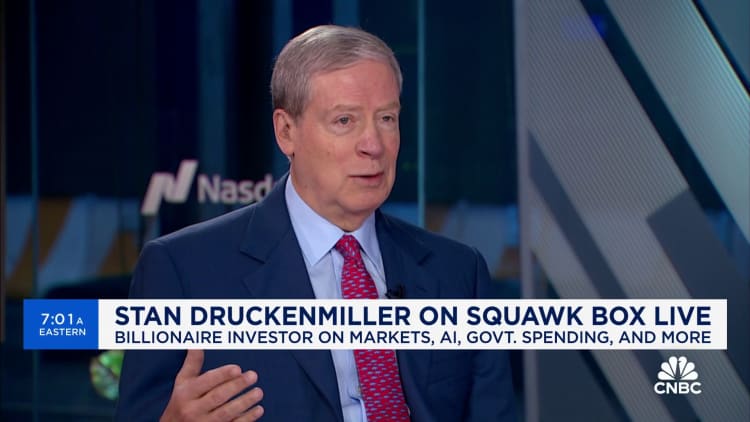Billionaire investor Stanley Druckenmiller revealed Tuesday that he cut his big bet in chipmaker Nvidia earlier this year, saying the rapid artificial intelligence boom could be overdone in the short term.
“We cut that and several other trades in late March. I just need a break. We've been through a rough patch. A lot of what we realized is now being recognized by the market.” Druckenmiller said on CNBC's “Squawk Box.”
Druckenmiller said he cut the bet after the stock “got from $150 to $900.” He added: “I'm not Warren Buffett; I don't own things for 10 or 20 years. I wish I were Warren Buffett.”
Nvidia has been a major beneficiary of the tech industry's recent obsession with large AI models, which are developed on the company's expensive graphics processors for servers. The stock was one of the best performers last year, rising a whopping 238%. Shares rise another 66% in 2024.
The prominent investor, who now runs the Duquesne family office, said he was introduced to Nvidia by his young partner in the fall of 2022, who believes the excitement around blockchain will be far outweighed by artificial intelligence.
“I didn’t even know how to spell it,” Druckenmiller said. “I bought it. Then a month later, ChatGPT happened. Even an old guy like me can understand very well what that means, so I increased the position dramatically.”
While Druckenmiller reduced his position at Nvidia this year, he said he remains optimistic in the long term about the power of artificial intelligence.
“So AI may be a little overrated now, but it's underappreciated in the long term,” he said. “AI can mesh with the Internet. As we go through all this capital spending, we need to see the payback as it comes incrementally day by day. The big payoff could be four to five years from now.”
The widely followed investor also owns Microsoft And the alphabet Artificial intelligence has also been playing over the past year.
Druckenmiller once managed George Soros's Quantum Fund and gained fame after helming a $10 billion bet against the British pound in 1992. He later oversaw $12 billion as head of Duquesne Capital Management before closing his company in 2010.


